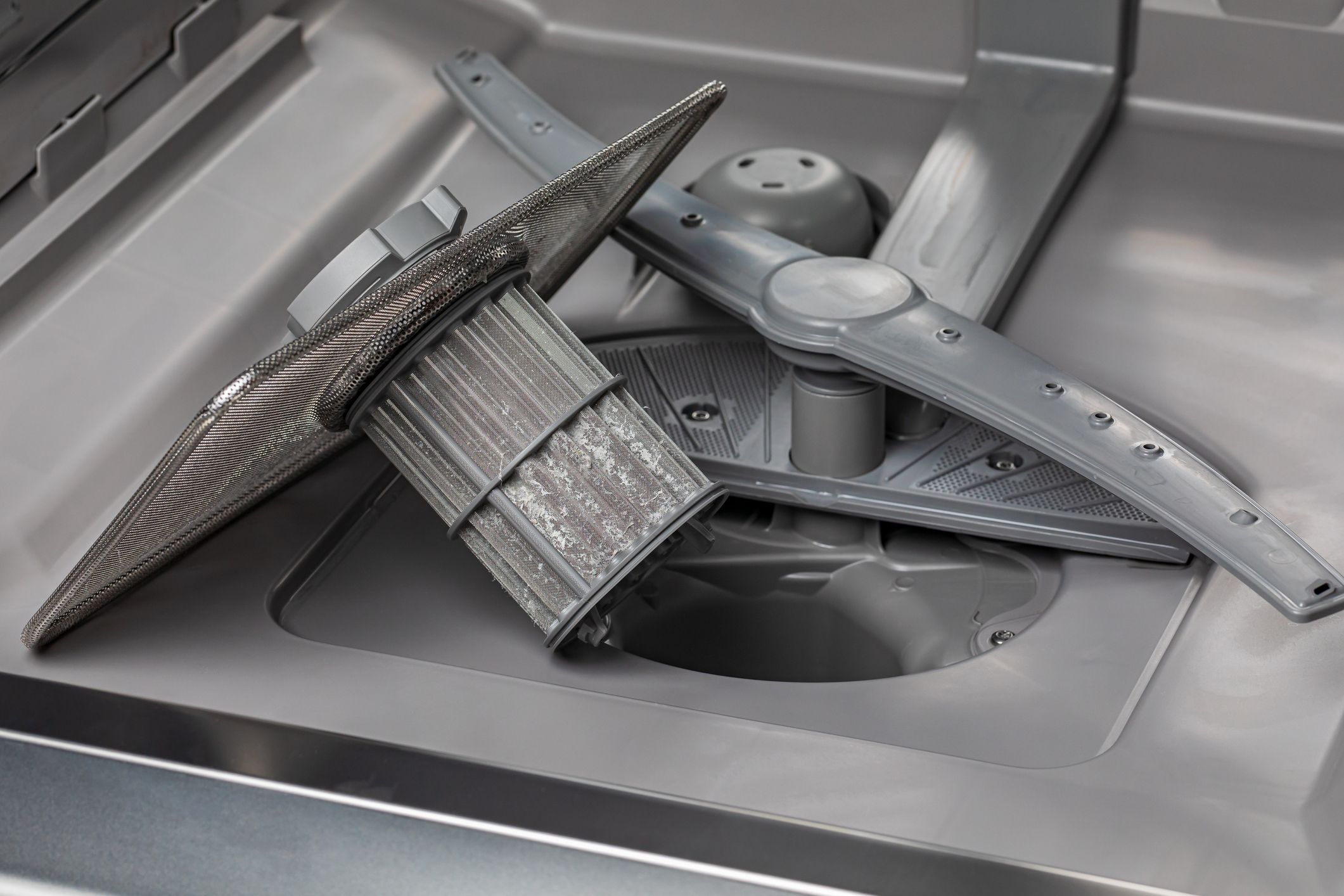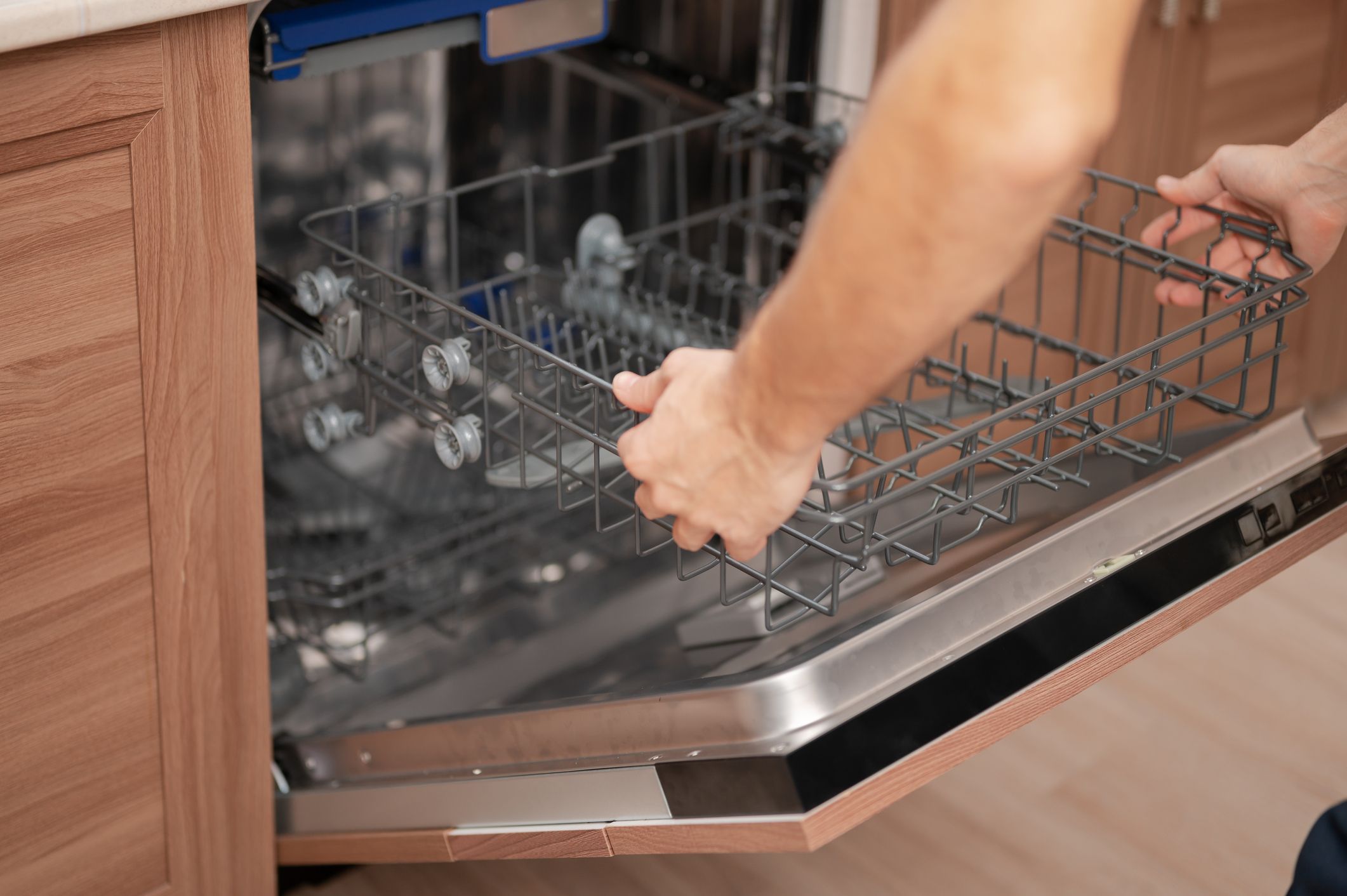CLEANING TIPS
How Often You Should Clean Your Dishwasher
Published: November 3, 2023
Updated: January 23, 2025


A dishwasher is a kitchen workhorse that makes our lives easier by efficiently handling dirty dishes. But, like any other appliance, it requires regular maintenance to function optimally. In this comprehensive guide, we'll delve into the importance of cleaning your dishwasher and provide you with a clear roadmap on how often you should do it and how to do clean your dishwasher effectively.
Why is it important to clean your dishwasher?
Before we dive into the nitty-gritty of dishwasher maintenance, it's important to understand why it's essential to keep this kitchen companion in top-notch condition.
-
Efficiency: A clean dishwasher is a more efficient dishwasher. When the spray arms, filters, and other components are free from food debris and mineral build-up, your dishwasher can do its job effectively, ensuring spotless dishes every time.
-
Odor Control: Over time, organic matter and mineral deposits can accumulate in the nooks and crannies of your dishwasher, leading to unpleasant odors. Regular cleaning helps eliminate these odor-causing agents.
-
Prevents Clogs and Blockages: Food particles, grease, and soap scum can accumulate in the filters, spray arms, and drain, leading to clogs and blockages. Routine maintenance can help prevent these issues.
-
Prolongs Lifespan: Just like any other appliance, a well-maintained dishwasher is likely to last longer. Regular cleaning and maintenance can help prevent major breakdowns and expensive repairs.

How often should you clean your dishwasher?
Now that we understand why cleaning your dishwasher is crucial, let's discuss how often you should do it.
Weekly:
-
Wipe Down the Interior: Use a damp cloth or sponge to wipe down the interior of your dishwasher. Pay special attention to the door gasket and the edges of the door where grime and residue tend to accumulate.
-
Check the Spray Arms: Inspect the spray arms for clogs or debris. Gently remove any obstructions using a toothpick or a small brush.

Bi-Weekly:
- Clean the Filter: Most dishwashers have a removable filter that traps food particles. Remove it and rinse it under warm water to remove any accumulated debris.
- Run an Empty Cycle with Vinegar: Place a cup of white vinegar on the top rack and run a hot water cycle. This helps remove mineral deposits and disinfects the interior.
Monthly:
-
Inspect the Drain: Remove any visible debris from the dishwasher drain and clean the area around it. A clogged drain can lead to poor performance and odors.
-
Check the Seal and Hinges: Inspect the door gasket for signs of wear or damage. Clean it with a mild detergent if needed. Lubricate the hinges if they appear to be squeaky or stiff.

Every 3-6 Months:
-
Deep Clean the Interior: Remove the racks and give the interior a thorough cleaning. Use a dishwasher-safe cleaner or a mixture of baking soda and water to scrub away any stubborn stains or build-up.
-
Clean the Exterior: Wipe down the exterior of the dishwasher, including the control panel and handles, using a mild detergent.
Yearly:
-
Inspect the Water Inlet Valve: Check for any signs of leaks or mineral deposits around the water inlet valve. If you notice any issues, it may be time to replace it.
-
Examine the Hoses: Inspect the hoses for any cracks, kinks, or leaks. Replace them if necessary to prevent potential water damage.
Regular maintenance is the key to keeping your dishwasher in tip-top shape. By following this comprehensive cleaning schedule, you'll not only ensure that your dishwasher performs at its best but also extend its lifespan, saving you money on potential repairs or replacements. Remember, a clean dishwasher leads to the cleanest dishes—even better when paired with Blueland. Happy dishwashing!

